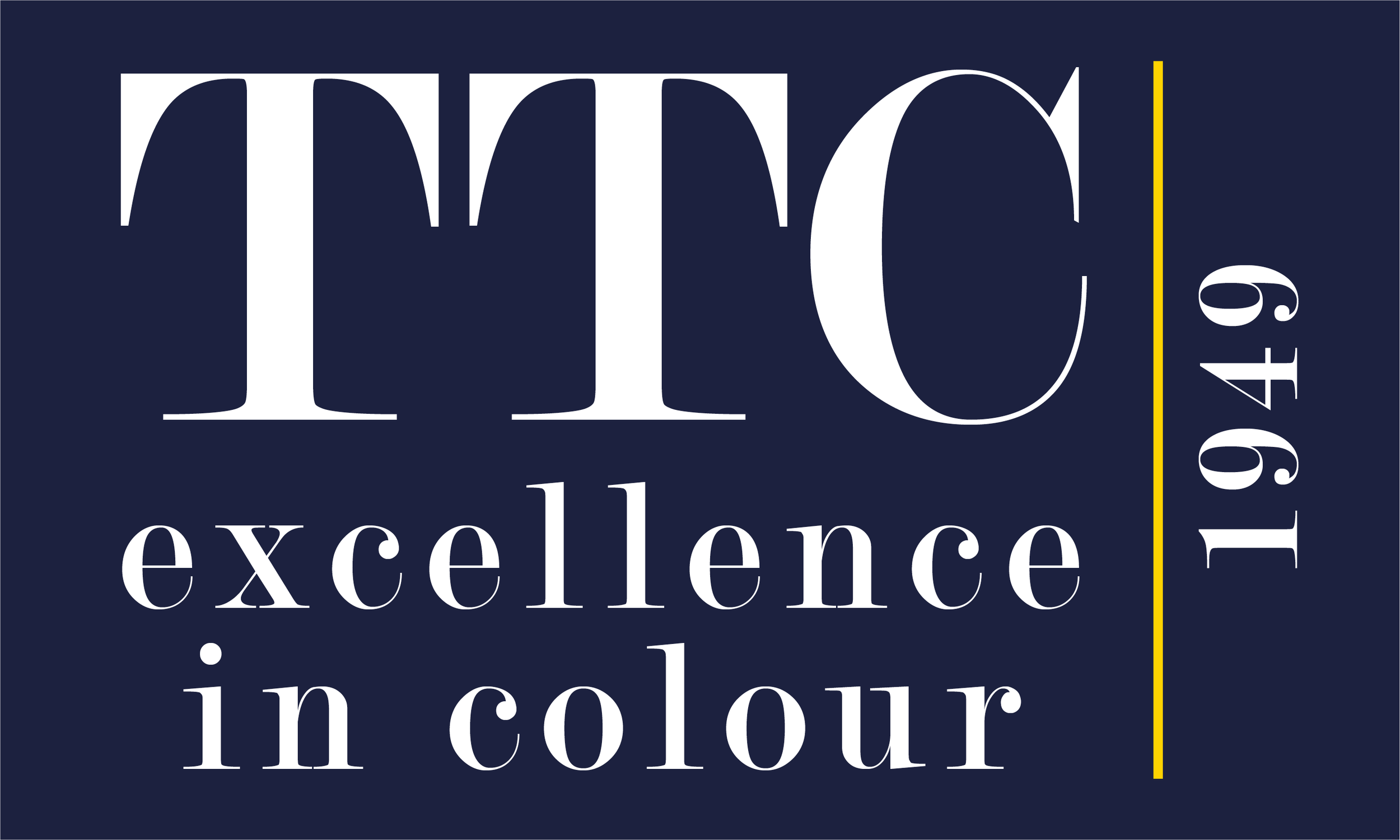July FY2025 Newsletter
Welcome to the TTC July 2025 Newsletter.
Dear Colleagues, Partners, and Industry Friends,
As we pass the halfway point of 2025, I’d like to take a moment to reflect on the trends, challenges, and opportunities shaping the colour industry so far this year. Against a backdrop of shifting global demand, tightening regulatory landscapes, and rapid innovation in sustainable technologies, the sector continues to demonstrate both resilience and creativity.
We’ve seen challenges in the supply chain through extended transport times, a moderate increase in demand but not a market recovery, a greater interest for high-performance and recyclable colourants, and increasing pressure to meet environmental standards across all markets.
In this issue, we’ll explore key developments from Q1 and Q2, including updates on Regulatory, Sustainability and personnel updates.
Thank you for your continued support and engagement. Let’s continue driving colour forward—responsibly, boldly, and together.
Warm regards,
John Perrie
(Managing Director)
Regulatory
Water-based colourants need to be protected against bacteria and mould. This is achieved by using a mix of different types of biocides, each with a specific purpose and effectiveness. Commission Delegated Regulation (EU) 2024/197 of 19th October 2023, amending Regulation (EC) No 1272/2008, revised the skin sensitising Specific Concentration Limit for 1,2-benzisothiazol-3(2H)-one, reducing it from ≥0,050 % to ≥0,036 %.
From the 1st September 2025, the transition period ends for the application of this classification.
To prevent TTC products having a skin sensitising classification, the concentration of 1,2-benzisothiazol-3(2H)-one will be reduced to 0.0350% for our water based products. Stock that was manufactured using the previous biocide package is currently working out of the system and by the implementation date all products supplied will be compliant with the new regime.
If you have questions or require further information, please contact us.
Apprenticeships
At TTC we are continually engaged with the local community and education establishments offering apprenticeship opportunities as well as summer internships. Over the last years working with Queens University Belfast, we provided summer internships for students from the Chemical Engineering program. The students get real world experience gained from time in the lab to the plant. We also offer apprenticeship opportunities working with the local schools and colleges to provide opportunities in Engineering and Production. This engagement with local education establishments helps us to bring forward the next generation of colour experts at TTC.
To learn more or express interest in an apprenticeship, please contact us.
Meet the Team
We continue to invest in our team and especially our technical team. TTC Oldbury is our solvent production facility located in Oldbury on a shared site with Tennants Group Company - BIP (Oldbury) LTD. In March 2025 Nathaniel Mason-Burns joined the team in the role of Laboratory Technician providing support for production as well as R&D product development. Nathaniel’s background in Chemistry with a degree from University of Birmingham, provides a strong foundation for colour formulation development.
Rapeseed Oil Colourants
Biobased products are gaining at lot of traction and interest currently driven by sustainability requirements.
At TTC we have a biobased range of colourant in rapeseed oil. Rapeseed is a plant derived oil, rich in long-chain fatty acids (especially oleic and linoleic acid), renewable with low carbon footprint offering a sustainable product for formulators. Applications range from kid's art supplies to Offset Inks and Alkyd Coatings (architectural, wood, or industrial).
Rapeseed oil has good solvency for organic pigments allowing for efficient wet-out and dispersion without excessive milling, hence controlling costs. It has good compatibility in natural and synthetic resins used in oleoresinous systems or alkyds. It can act as a co-resin or film forming aid contributing to film building and gloss in some systems. Due to it's low odour and toxicity it's ideal for applications with sensitive end use such as kid's art suppliers and packaging inks for indirect food contact.
If you would like to learn more about this biobased range and whether it would be suitable for a particular application, please contact us to discuss your need.
